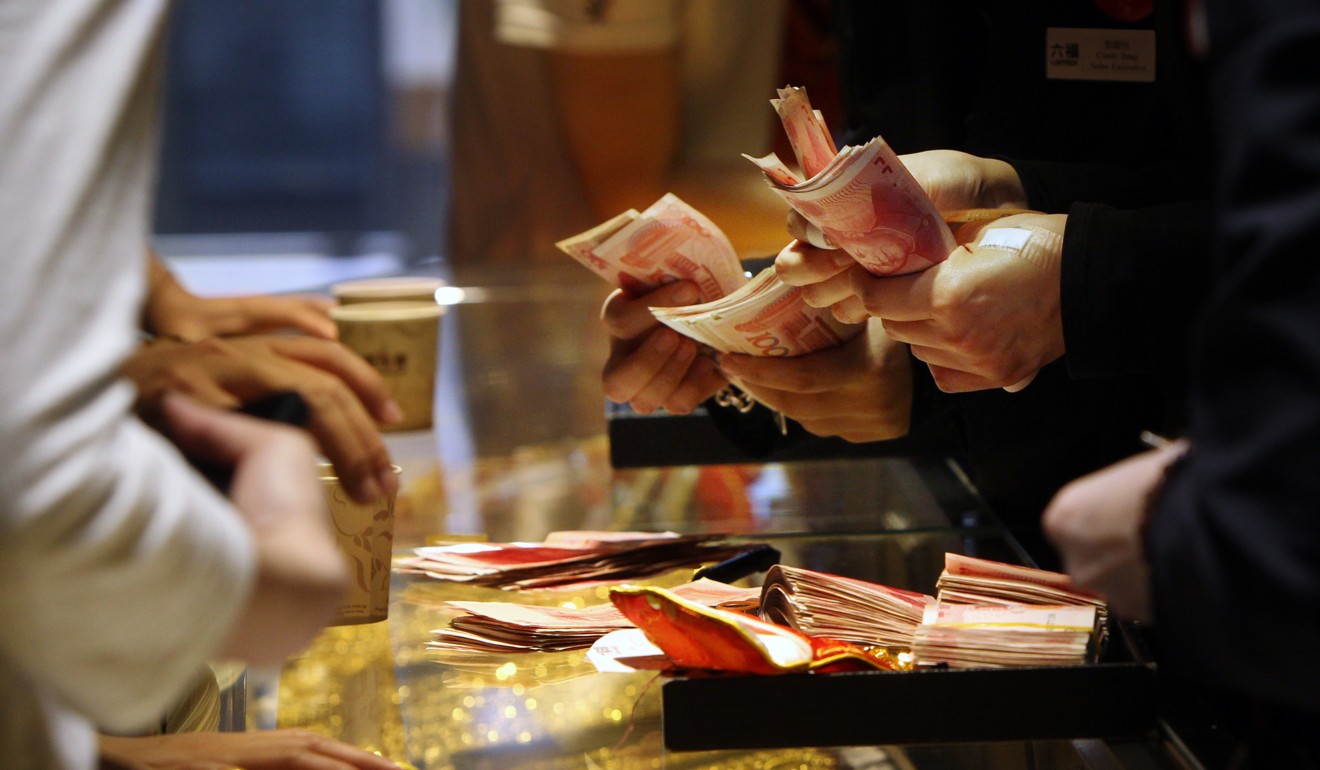If you’re Chinese, then being a ‘shameless’ savvy saver is likely to be in your DNA
The desire for a nest egg comes from a deep sense of responsibility to provide for one’s family and stash cash away for a rainy day, Luisa Tam explains

Chinese people, like most others, love money. But to be more precise, we take great joy in scrupulously balancing between saving money and spending within our means.
This attitude has been extolled as a virtue. In fact, it’s become so ingrained in our psyche that no matter where or how we are brought up or how we are educated, when it comes to handling money, being sensible and frugal is second nature to us.
We often do it without thinking and feel no shame in doing so, even if we might appear penny-pinching to others.
So there was little surprise when a recent Citibank study revealed Hong Kong is packed with a million millionaires, 68,000 of whom have at least HK$10 million (US$1.27 million) squirrelled away.
Another report by Wealth-X, a firm that conducts research and valuations on ultra-high net worth individuals, also found that Hong Kong is a magnet for the ultra-wealthy. It was the city with the second-highest number of such residents, after New York.
Any Chinese would tell you that accumulating wealth may be hard work, but keeping it is even harder.
As a popular Chinese saying goes, “The first generation makes the money, the second one holds onto the inheritance, but the third one spends it.” This Chinese proverb serves as a warning and a reminder that sensible budgeting and frugality is not only a virtue but a survival mantra that needs to be etched on the mind.
Therefore, our attitudes towards money are shaped early in life by our elders as an integral part of Chinese culture and upbringing. We are told at a very young age that to be a responsible person, we must work hard and save up a nest egg to secure our future and consequently, our family’s future.
All Chinese are also familiar with the saying, “To store up grains in case of a famine”. This obviously is the basic principle that illustrates we may be money-oriented but it’s all for good reason.
We are driven by a sense of responsibility to provide for our families and the fear that something might go wrong also prompts us to work hard to save up for rainy days.
Many of my old relatives have said that their life savings are hidden away in tin boxes stashed under their beds, cupboards or even their floorboards. I once came across a biscuit tin that contained a big wad of HK$1,000 bills, a bank book, some old photographs and some identification documents; I later found out the items belonged to one of my aunts.
When I asked her why she stored all these valuables in a tin box, she said the items were like her life – the photographs were her past and the money was to support her now and in the future. She thought keeping “her life” in a tin box was the best way to keep it safe, as in the event of a misfortune like a fire, she would be able to quickly grab all of her valuables.
Last week, I was having dinner with my girlfriend and when she ordered hot lemon water, I immediately asked the waiter to give her a mug of hot water instead, but with two pieces of lemon for me. The waiter took the order but gave me a funny look. I didn’t even have to explain to my girlfriend, Patty, who is an overseas Chinese, the reasoning behind my order – I wanted to save money.

By ordering the hot water and lemon separately, the restaurant wouldn’t know how to charge us – so it would be free. We burst out laughing and both agreed that being thrifty is in our DNA. We may come from very different backgrounds but we are undeniably Chinese when it comes to our views of money.
Famed Canadian comedian Russell Peters was spot on in one of his shows when he described a shopping experience he had when trying to get a discount from a Chinese shop owner who only gave him a reduction of 50 cents.
He said “Chinese won’t give you a bargain … instead they will try to get every penny from you.”
Many years ago, I heard that for every $10 a Chinese makes, they would save $9. It might sound far-fetched but it’s true that an average Chinese person saves a lot more than many of his overseas counterparts.

According to the International Monetary Fund, from 1995 to 2005, the average urban household savings rate in China stood at 25 per cent of disposable income, with some other analysts even putting it as high as 30 per cent.
When we have our minds set on earning that first barrel of gold, every penny counts, and we always look for a bargain. Others may laugh at our frugality or supposed stinginess, but at the end of the day, there’s no shame in being a savvy saver – even in times of prosperity.
With that in mind, let’s finish off today with another Chinese adage and some food for thought: “When rich, think of poverty, but do not think of riches when you are poor”. In other words, there is never a bad time to save. Even when you have deep pockets, you must always be prepared for leaner times.
Luisa Tam is a senior editor at the Post